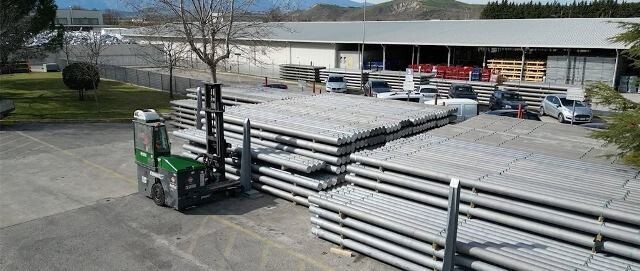

Hydro, the Norwegian aluminium and renewable energy company, is set to invest EUR 14.8 million in upgrading the recycling facilities at its extrusion plant located in Atessa, Italy. This substantial investment aims to facilitate the production of Hydro CIRCAL recycled aluminium.

About the project
The upgrade project in Atessa will significantly enhance the plant's recycling capacity, increasing it from 30,000 to 40,000 tonnes annually. Notably, 20,000 tonnes of this capacity will be dedicated to producing low-carbon aluminium derived from 75 per cent recycled post-consumer scrap.
The allocated funds will primarily go towards acquiring state-of-the-art recycling equipment. This includes a de-lacquering line, an additional furnace, and various facility upgrades. This strategic investment underscores Hydro's commitment to sustainable practices and reinforces its position as a leader in the aluminium industry.
Strategic and financial impact
The integration of low-carbon, end-of-life recycled production at the Atessa facility holds significant promise for advancing Hydro Building Systems' (HBS) growth and profitability. This expanded capacity reinforces HBS's commitment to sustainability and bolsters its aspirations to penetrate markets in the Middle East, Asia, and China.
"The availability of recycled, low-carbon aluminium made of post-consumer scrap is extremely important for our further growth and profitability. It is one of our unique selling points and currently our ambitions exceed our capacity," said Paul Warton, Executive Vice President of Hydro Extrusions.
The Window to Window (W2W) concept
The W2W concept represents a groundbreaking recycling initiative designed to revolutionize the transformation of old aluminium windows into new ones, all through a meticulously traceable process. This initiative aligns seamlessly with Hydro's sustainability objectives while generating substantial economic value by harnessing post-consumer scrap sourced directly from renovation endeavours.
Italy boasts numerous refurbishment undertakings where ageing aluminium windows and doors are swapped for newer models. With this investment, the Atessa operations can substitute 75 per cent of their current sales volume with post-consumer scrap procured from these renovation projects. This strategic move not only underscores Hydro's commitment to sustainability but also its dedication to innovation and circular economy principles.



Responses






